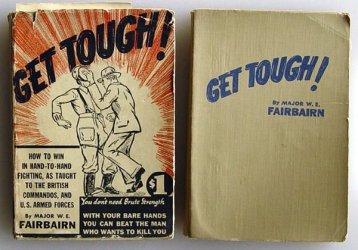What's the difference between a scholar and a MAist?
When a
- scholar takes a 10 questions test, he starts from Q1 and works to Q10. When he has problem with Q6, he can skip it. work on Q7 first. After he has finished Q10, he can then go back to Q6.
- knife is stabbing toward a MAist's chest, he has only 1/4 second to react whether he will be alive or dead.
MA is not how much that you know in your head. MA is how much that you can do on your body. Unless you have developed some "door guarding" skill to defend your life, to read some books won't be able to help you in the long run.
I was taught this way. I will suggest my next generation this way too. MA is for doing. It's not for reading or talking.
If a knife is stabbing towards your chest and you have only 1/4 second to react, then it is too late to practice 1000 reps of your favorite evasion/disarm technique so that you can develop reliable skill. You have to do that in the years beforehand, right? I'm certain you understand that much.
Likewise, if a situation is about to develop where someone is about to try stabbing you with a knife, then it is too late to go out and study the circumstances that lead to real world deadly assaults, learn how to recognize and avoid or defuse those circumstances ahead of time, discover how people use knives in real assaults, find out the legalities of options for self-defense in your neck of the woods, and prepare a game plan for how to handle a potential assault without going to prison or the morgue. You have to do all of that ahead of time as well. Much of that information is going to be more available in books than from your martial arts instructor.
If you rely only on your physical skills and no mental preparation to fend off that knife attack then there are a few likely options:
You will end up dead or seriously injured. Unarmed defenses against a knife attack are last-ditch, low-percentage techniques - especially since someone who actually wants to kill you with a knife will probably not let you see the knife beforehand.
You will end up in jail, even if you do prevail in the physical confrontation, because you have no plan for dealing with the legalities or the aftermath of the fight.
Reading books on self-defense is not about being able to spout scholarly theories. It's about understanding and preparing for the 95% of self-defense that doesn't involve fighting.


